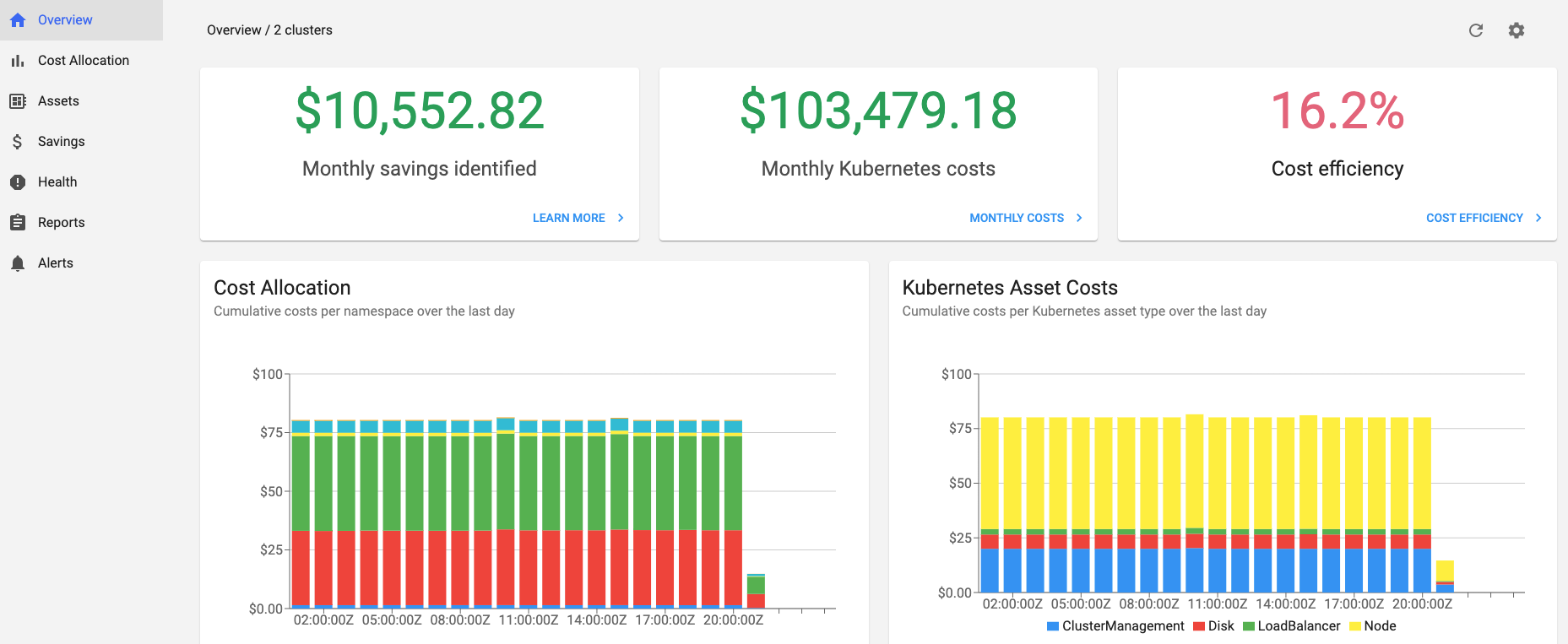In the past year, Kubernetes adoption exploded, with over 5.6 million developers using the cloud-native tools — an increase of 67% from the year prior.
For those who need a refresher on Kubernetes, it is an open source container project created by Google in 2014 to automate, monitor and run applications.
Kubernetes is one of the most-used tools by cloud-native developers and can be challenging as a company grows, but Kubecost aims to alleviate some of those growing pains through its open source tools for monitoring, managing and optimizing Kubernetes spend at scale.
The company was founded in 2019 by two former Google employees, Webb Brown and Ajay Tripathy, who previously worked on infrastructure monitoring solutions for Google infrastructure and Google Cloud.
“There has been a problem in the space around cost, performance and reliability, by far, with this major transition to containers,” Brown told TC. “Teams were getting benefits, but totally sacrificing visibility in spending, kind of like having a payroll of millions of dollars, but not knowing what department, team or individuals are getting paid what.”
Without that visibility, Brown explained that the downstream effects could be seen in additional waste — he has seen teams overspend, in some cases, by 80% when they don’t know the cost of a product.
Recognizing the need for teams to have spending safety nets to cushion for future shocks, Kubecost set out to provide the real-time cost visibility and insights required to continuously monitor and reduce millions of dollars in Kubernetes-related cloud costs.
The company’s core product is open source and freely available for teams, something Brown said will always be true. It also has a commercial product for enterprises that can be functionally installed in minutes and tried or used without having to take to sales.
Customers don’t have to share information with Kubecost, but instead the technology takes the open source information and brings it into the customer’s environment and integrates with its cloud or on-premise data center.
From there, information is colle1cted in real time and insights provided that show all the areas where a company is spending resources, driving up costs and why costs are going up. Kubecost then provides insights on how to reduce costs and sends alerts or can help set policies so that it can be managed over time.

Image Credits: Kubecost
Kubecost is already working with more than 2,000 companies, including over 100 enterprise customers — a number that went up three times over last year with five times the engagement metrics — and manages over $2 billion in Kubernetes spend. The company’s annual recurring revenue is growing three times year over year. Brown did not share a specific company valuation, but did say it went up five times from last year.
With adoption expected to continue on its trajectory, the company secured $25 million in Series A funding in a round, led by Coatue Management, with participation from seed investors First Round Capital and Afore Capital. As part of the investment, Coatue partner David Cahn will join Kubecost’s board of directors.
The new capital will be investing in hiring across the board. Kubecost’s origins started with open source, and Brown plans to make some major investments in that community and on more features. It is also preparing to implement tons of new features, integrations with other products in the ecosystem and more development on insights and optimizations.
In addition, the company is also starting its journey with “Hosted Kubecost,” a value-add for teams that, after trying the product, want to let the company manage the functionalities on their behalf.
“Overall, there has been an amazing wave of fundamental transformation from cloud to containers, which when you look at it is as big as the transition from data centers to the cloud, so we expect that to continue,” Brown said. “Kubernetes is at the heart of the modern enterprise tech stack. We plan to go deeper there to make transitions and get to a high-scale product that can run all applications through it.”


![Read more about the article [Weekly funding roundup] Steep decline in venture capital inflow into startups](https://blog.digitalsevaa.com/wp-content/uploads/2022/04/weekly-funding-roundup-1640354161359-300x150.png)






